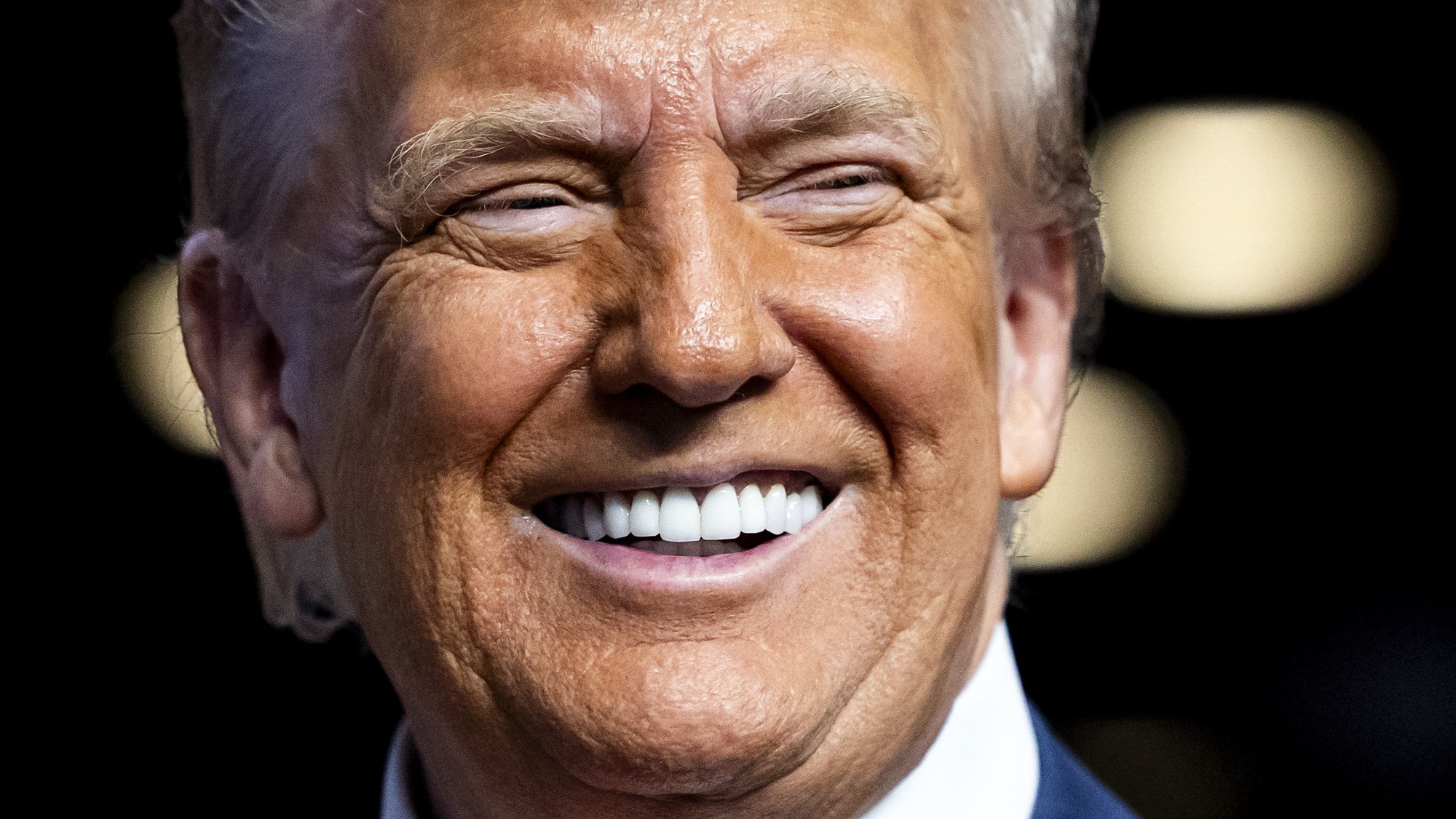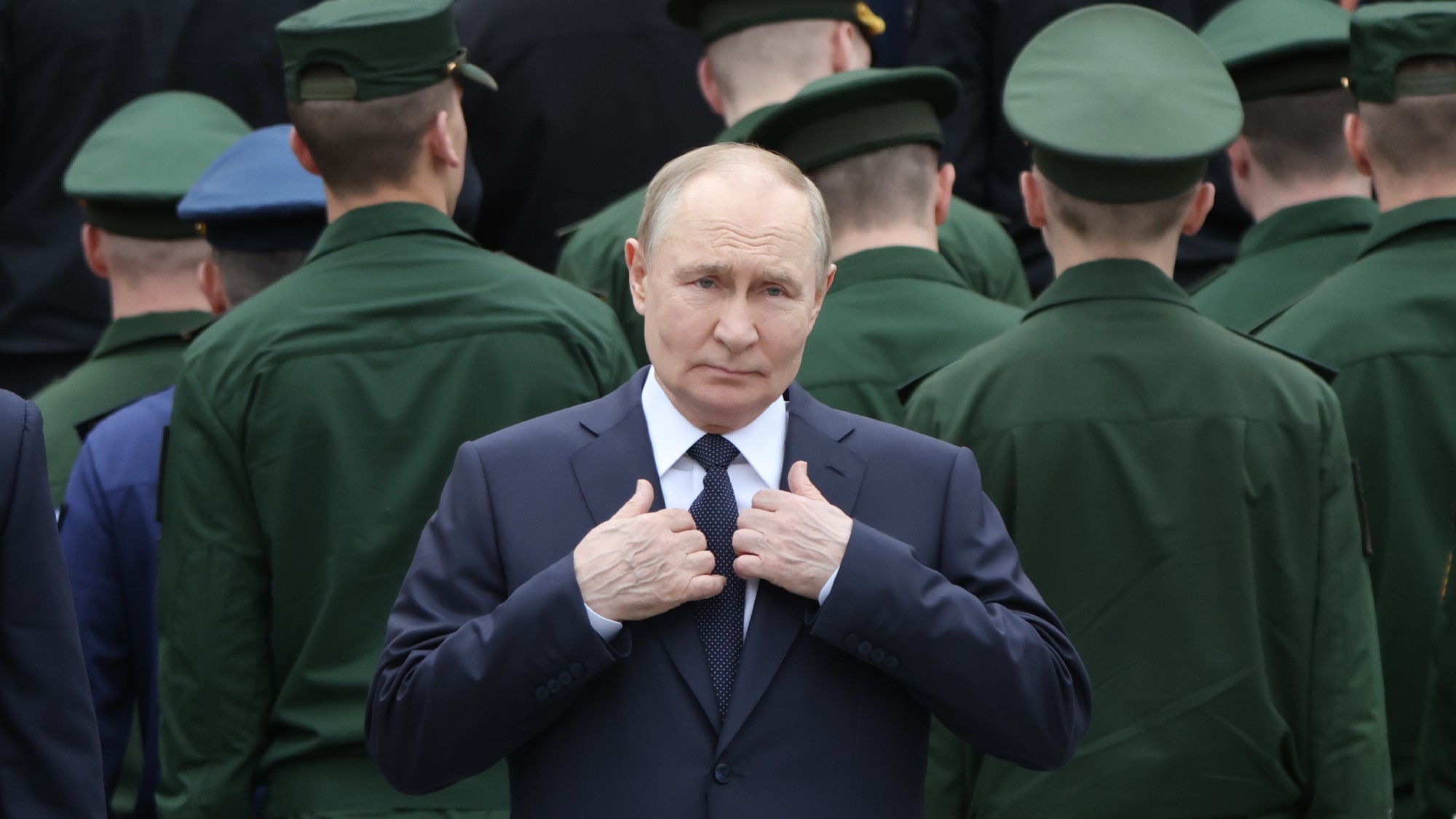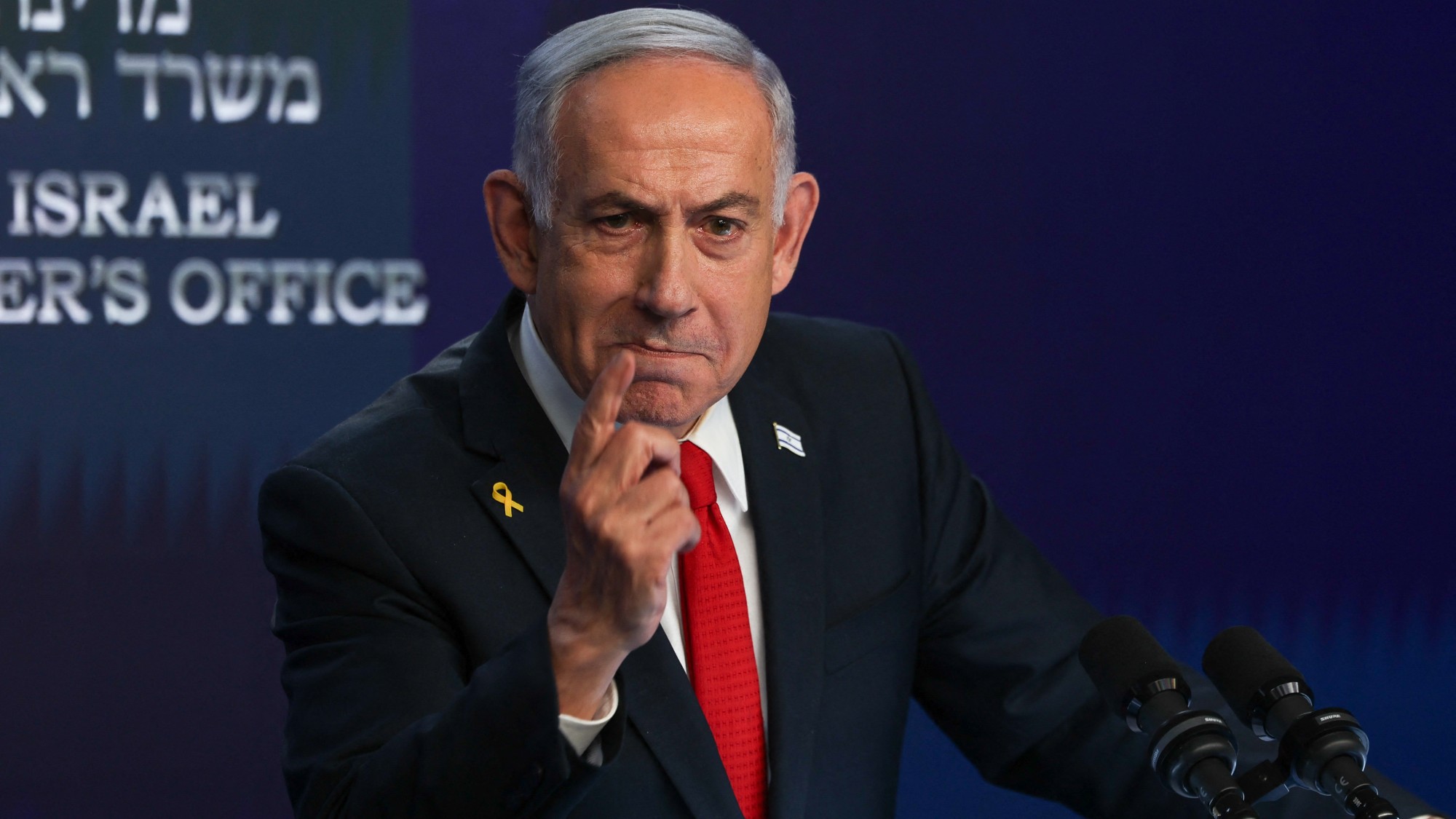Will the UK stop selling arms to Israel?
Calls from across political spectrum put pressure on Rishi Sunak to halt multimillion-pound weapons deals

Three former Supreme Court judges have joined calls for the UK to end weapons sales to Israel following the deaths of seven aid workers in an air strike in Gaza.
More than 600 legal experts wrote to Rishi Sunak to warn that the UK risks breaking international law over a "plausible risk of genocide" in the Palestinian territory.
Canada, Belgium, Italy, Spain and the Netherlands have suspended arms exports to Israel in recent months. A YouGov poll of more than 2,100 UK adults in late March found that 56% believed the UK should follow suit, while 17% said arms exports to Israel should continue.
Subscribe to The Week
Escape your echo chamber. Get the facts behind the news, plus analysis from multiple perspectives.

Sign up for The Week's Free Newsletters
From our morning news briefing to a weekly Good News Newsletter, get the best of The Week delivered directly to your inbox.
From our morning news briefing to a weekly Good News Newsletter, get the best of The Week delivered directly to your inbox.
What did the commentators say?
The 17-page letter, to which the former Supreme Court president Lady Hale was among the signatories, said the sale of arms and weapons systems to Israel "falls significantly short" of the government's obligations under international law.
According to pressure group Campaign Against Arms Trade, the UK has licensed arms to Israel worth more than £574 million since 2008, when official country-level data first became available. Britain supplies 15% of the value of the US-made F-35 fighter jets that have been used in Gaza.
British sales are "lower than those of other countries", said the BBC, including Germany and Italy, and are "dwarfed by the billions" supplied by Israel's largest arms supplier, the US.
But former foreign secretary Jack Straw has argued that Israel's "inhumane" actions are reason to halt all arms supplies from the UK. Straw told the i news site that he was "exhausted by listening to the excuses of IDF spokespeople about how careful the IDF is when everyone knows, especially those of us who have had to deal with them, they are not careful".
A free daily email with the biggest news stories of the day – and the best features from TheWeek.com
Yet the UK's arms export procedures give Israel the "benefit of the doubt", said Patrick Wintour, diplomatic editor of The Guardian. London is "rigging the game so that it can never be forced to admit there have been violations", in a "case of hear no evil, see no evil".
Some Tory MPs, including David Jones and Flick Drummond, are also pressing Sunak to act, "arguing these repeated pleas to Israel to kill fewer civilians don't cut the mustard and never did", said Politico's London Playbook. Former Conservative MP Crispin Blunt, now sitting as an independent, told the news site that cancelling arms exports was "the least of the measures the UK and others should be engaged in".
Tory MP Bob Seely disagreed, advising against "virtue signalling or tutting". He argued that "if we go off in a huff every time somebody does something we don't like, we're not going to have any friends in the world".
Former home secretary Suella Braverman also rejected the idea of a ban, telling the BB that "we owe it to Israel to stand with them". Speaking during a visit to Israel, Braverman said: "I think that it would be a tragic shame if we were to walk away from our closest ally in this region."
What next?
Straw has urged Foreign Secretary David Cameron to use a Nato summit in Brussels this week to coordinate a Europe-wide ban on arming Israel.
But few expect this to happen. On Tuesday, Sunak said the UK has a "very careful" arms licensing regime. Defence industry sources told the i news site that they thought the UK would hold off on an arms embargo for the time being.
"While I understand and support the call for an embargo personally, some arms sales to Israel pose a deterrent to Iran," said a source. So the prime minister is unlikely to "do anything bar follow the US", even though "the death of Britons makes that harder".
Peter Ricketts, who chaired the Joint Intelligence Committee under Tony Blair, is "of the view" that Washington may now "reconsider" its military links with Israel, said The Independent. "I think each time there is another of these horrors, they must be getting closer to the point where the Americans start putting some restrictions on their arms," he said.
In the meantime, "less controversial but still effective policies could be taken up" by the UK, said the i news site. These include considering a halt on "other security related exports, such as police hardware or CCTV-style equipment", or the "access to UK markets for Israeli defence firms".
Chas Newkey-Burden has been part of The Week Digital team for more than a decade and a journalist for 25 years, starting out on the irreverent football weekly 90 Minutes, before moving to lifestyle magazines Loaded and Attitude. He was a columnist for The Big Issue and landed a world exclusive with David Beckham that became the weekly magazine’s bestselling issue. He now writes regularly for The Guardian, The Telegraph, The Independent, Metro, FourFourTwo and the i new site. He is also the author of a number of non-fiction books.
-
 Savages: a tragi-comedy set in a 'quirky handcrafted world'
Savages: a tragi-comedy set in a 'quirky handcrafted world'The Week Recommends This new animated film by Oscar-nominated filmmaker Claude Barras is undeniably political, but it has a hopeful message
-
 Why 'faceless bots' are interviewing job hunters
Why 'faceless bots' are interviewing job huntersIn The Spotlight Artificial intelligence is taking over a crucial part of recruitment
-
 Who will win the battle for the soul of the Green Party?
Who will win the battle for the soul of the Green Party?An ideological divide is taking root among the environmentalists
-
 How long can Nato keep Donald Trump happy?
How long can Nato keep Donald Trump happy?Today's Big Question Military alliance pulls out all the stops to woo US president on his peacemaker victory lap
-
 How far would Russia go for Iran?
How far would Russia go for Iran?Today's Big Question US air strikes represent an 'embarrassment, provocation and opportunity' all rolled into one for Vladimir Putin
-
 How the Israel-Iran conflict broke out
How the Israel-Iran conflict broke outThe Explainer Israel's strike on Iran's nuclear and missile programmes was years in the planning
-
 Blaise Metreweli: the first female head of MI6
Blaise Metreweli: the first female head of MI6In the Spotlight The intelligence service's current technology boss – known as 'Q' – has been revealed as the new chief, or 'C'
-
 Will the UK get involved in the Israel-Iran conflict?
Will the UK get involved in the Israel-Iran conflict?Today's Big Question Keir Starmer is 'walking a tightrope' in helping Israel limit Tehran's nuclear capabilities without being seen to do so
-
 What happens if Israel attacks Iran?
What happens if Israel attacks Iran?TODAY'S BIG QUESTION Israel is 'ready to strike' and Tehran has plans for counterattacks against the US as nuclear talks appear deadlocked
-
 Are the UK and Russia already at war?
Are the UK and Russia already at war?Today's Big Question Moscow has long been on a 'menacing' war footing with London, says leading UK defence adviser
-
 How will the MoD's new cyber command unit work?
How will the MoD's new cyber command unit work?Today's Big Question Defence secretary outlines plans to combat 'intensifying' threat of cyberattacks from hostile states such as Russia